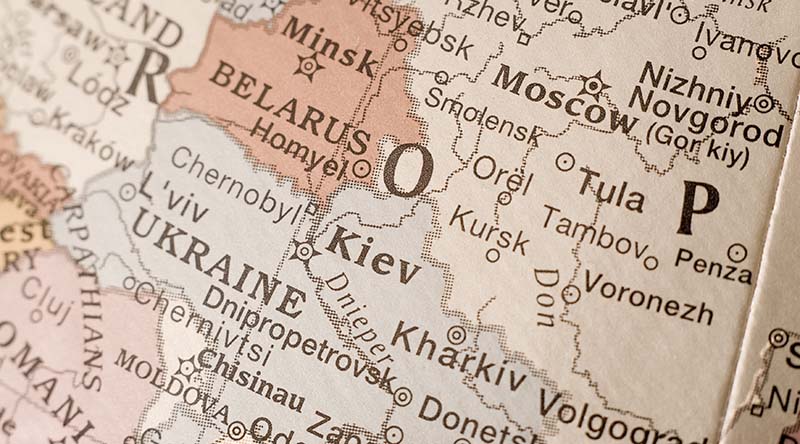The war in Ukraine has led to a number of sanctions against Russia and Belarus, including those imposed by the European Union. In this brief update we focus on the sanctions in relation to Russia. The extensive import of energy (crude oil, oil products, LNG, coal) is not (yet) affected by sanctions, but the export and transshipment of containers in particular suffers from the uncertainty caused by the conflict and the sanctions.
Approximately 62 million tons of the almost 470 million tons of cargo that is being handled in the port of Rotterdam on an annual basis is linked to Russia (13%). There is also a significant amount of energy related imports from Russia which are transported via the port of Rotterdam. Roughly 30% of the crude oil currently comes from Russia, 25% of the LNG and 20% of the oil products and coal. In addition, Russia exports products such as steel, copper, aluminum and nickel through the port of Rotterdam.
Other Dutch ports also transship goods that either originate from Russia or are destined for Russia. In 2021, approximately 8% of the container transport in Rotterdam was linked to Russia. The European Union has banned the export of a large number of goods, including those that can be used for both civil and military purposes (‘dual use’). Containers destined for Russia are currently subject to extra checks and control by the Dutch customs. Dutch custom officials have recently conducted additional checks on containers destined for Russia and Belarus and checked approximately 32,000 cargo declarations. In 46 instances there was a suspicion that the sanction measures had been violated.
We reiterate as per our recent circular to clients that there is no blanket ban or blockade on goods destined for Russia. There are however two primary issues currently being faced by the terminals and forwarders:
Various liners have advised that they are scaling down or suspending their operations creating a serious backlog and logistical challenges; and
Dutch customs officials are taking a strict approach to compliance which means that all containers are likely to be checked and any potential “dual use” goods are likely not te be allowed to be forwarded to Russia.
Shipowners and charterers have to be 100% sure, when accepting cargo for onward transportation to Russia, that none of the goods are sanctioned. In case of any doubt, consult the shipping agent or contact Dutch customs directly. Whilst we are obviously not in a position to address any logistical issues we can try to assist to expedite clearance in specific cases based on the cargo information. We invite you to contact us if we can be of any assistance.
COVID-19 update
As in most countries the COVID pandemic in the Netherlands has largely come to an end and most COVID regulations and guidelines have now been withdrawn. At present only the recommendations which remain in place relate to personal conduct and hygiene and to the use of face masks in airports.
The Dutch authorities have reported that whilst vaccinations have significantly reduced the number of severe cases and hospitalizations and the immunity amongst the general population is high to due to the number of infections over the past two years, COVID has not gone away and there is still an expectation that infections could flare up in the autumn or due to the emergence of a new variant.
For people travelling to the Netherlands from within the EU/Schengen, the requirement to have a test, recovery or vaccination certificate ceased with effect of 23 March 2022. EU citizens travelling to the Netherlands from countries outside the EU/Schengen are also no longer subject to these requirement but are advised to do a self-test immediately after arrival and on day 5. For non-EU citizens, travel is only allowed for people who have been vaccinated or who have recovered from COVID-19, or are travelling from a designated safe country. In addition, testing requirements may also apply. Please feel free to contact us in case any further information or assistance is be required for crew changes or medical assistance.

